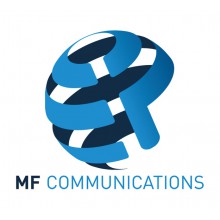Uptake of VoIP Telephony in Africa
Many corporations in Africa have branches and offices spread across wide areas of the continent. As technology advances, companies are beginning to replace traditional intra-communication via landline with other forms. Using mobile communication has cost implications, whereas VoIP calls are much cheaper, after paying initial set-up costs and broadband installation.
VoIP is not a new solution. It has been around for more than 20 years, with uptake rising over the last 10. With the legalisation of VoIP in countries like South Africa and Tanzania, growth continues. That and investment of next generation cabling for the use of IP and fibre optic cabling for improved broadband width, has supported this demand.
On the African continent, South Africa leads the way in terms of online retail, electronic and mobile banking, social media and cloud computing. The adoption of VoIP has facilitated the call centre industry, an area of rapid growth within the economy. In Tanzania, predicted economy growth for the period 2013-2017 is around 7% per annum GDP. Mobile saturation stands at around 70% and with the introduction of 3G and 4G, wireless broadband and VoIP, demand for smart devices and BYOD is high.
MF Communications recently received a $90k order to supply Siemens IP Telephones to a maintainer in South Africa. Sold via a maintainer in Tanzania to the Bank of Tanzania, this highlights the commitment of African countries to the adoption of VoIP solutions, as they move forwards in terms of technological development and advancement.
What is VoIP?
VoIP or Voice over Internet Protocol is a term used for making voice calls over the internet. It works by converting voice to digital packages and sending them out over the internet like any other data, such as emails.
A VoIP call can be to another VoIP user, a landline or even a mobile. In the case of a landline or a mobile, the VoIP call is ‘converted’ along the way and so ends up as a ‘traditional’ phone call.
Utilising IP telephony allows users to take full advantage of a range of features traditionally found on a PBX system. This includes call transfer, forwarding and hold, call conferencing, mobile office, for example. Click here for more information about hosted VoIP platforms.
Siemens Unify IP phones are high-end speakerphones, incorporating a 10/100 Base T mini switch to allow connection to the LAN. Standard voice codecs and QoS mechanisms provide high quality voice and facilitate the use of VoIP telephony.


